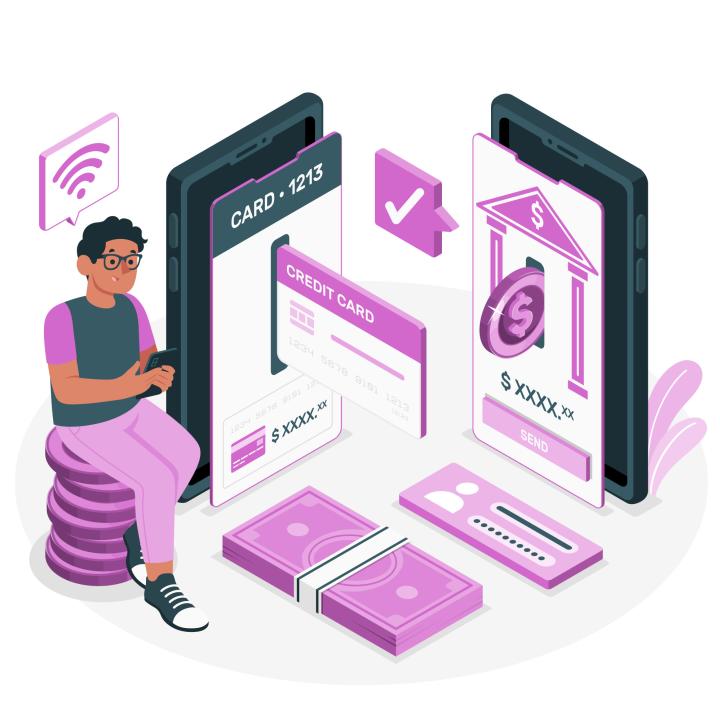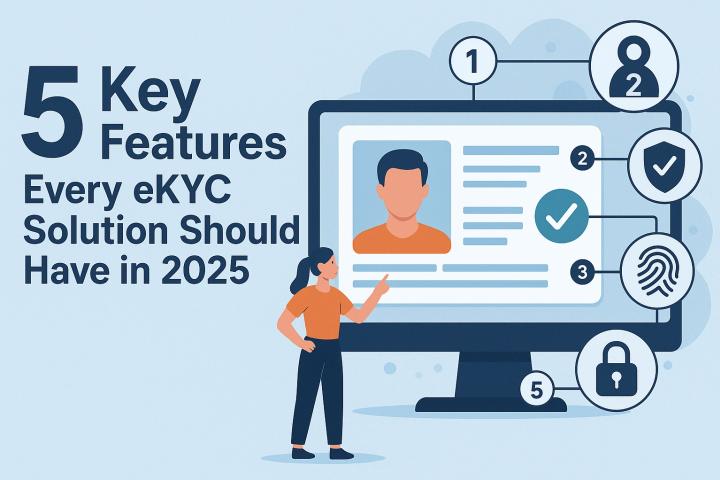With eKYC procedures, traditional client acquisition tactics are being replaced quickly. Digital KYC is one of the fastest, easiest, and most reliable ways to verify people. This is required for banking, insurance, telecommunications, and similar businesses.
However, it is rather challenging to ensure that these eKYC methods are secure and effective. Below is the complete list of all the features that you need to use to ensure eKYC for secure customer onboarding.
1. Biometric Verification
An important aspect of safe eKYC is biometric identification. To verify that the customer is who you onboard, biometric identification like fingerprints, facial recognition, or even the iris might be employed. Because biometrics are hard to copy, they offer excellent security. You need to implement secure and encrypt biometric verification data to prevent intrusion.
2. Multi-Factor Authentication (MFA)
In any business, using only one type of identification can be dangerous. However multi-factor authentication (MFA) is safer because it requires two ways to verify identification. Combining the user's password with their phone or biometric data makes it harder for unauthorized access to get in. Employ MFA at different stages of the onboarding process to prevent fraud.
3. Document Verification
Biometric identification is required to ensure that passports, driving licenses, and national ID cards are genuine. Sophisticated OCR technology can scan these documents and extract information from them. Machine learning algorithms can look for signs of fraud or tampering. Make sure that the eKYC system you choose can handle different document formats and types and can verify them in real time.
4. Liveness Detection
Liveness detection is very important to stop scammers who use pictures, videos, or deepfakes to pretend to be someone else. This technology makes sure that the general information comes from a real person at the time it was collected. During the onboarding process, techniques like facial movement analysis, blinking detection, and 3D depth awareness help make sure that a real person is there.
5. Secure Data Handling
The utmost security must be used when dealing with customer info. Use strong encryption methods both when sending and storing data. It is very important to follow data security rules like GDPR, CCPA, or local data privacy laws. To make sure the data is always safe, you should also do regular security checks, use secure systems, and have plans for how to handle data breaches.
6. User-Friendly Interface
An eKYC process that is safe doesn't have to be hard to use. Make sure that your user experience is clear and simple to use. A smooth hiring process makes customers happier and lowers the number of people who quit. At each step of the process, give clear directions and feedback, and make sure help is easy to find if it's needed.
7. Real-Time Verification
Speed is a very important part of keeping customers happy. Real-time verification technologies allow immediate feedback and quicker onboarding processes. APIs and database connections can be used to instantly check IDs and other required credentials.
8. Fraud Detection and Prevention
Use machine learning and artificial intelligence to find suspicious actions in your advanced fraud detection systems. Look for trends and behaviors that could mean fraud, like creating multiple accounts from the same IP address or information that doesn't match up. Keep your system up to date to keep up with new fraud schemes.
9. Regulatory Compliance
You need to follow rules set by your local regulators when it comes to eKYC. This includes rules against money laundering (AML), know-your-customer (KYC) requirements, and other rules that are specific to the business. To stay in line with new laws and rules, you should regularly update your methods.
10. Audit Trail and Reporting
Keep a full record of all contacts and transactions that happen during the onboarding process. You can use this record to show that you followed the rules in case of a dispute or a review. Your eKYC system should have full reporting tools that let you keep track of and analyze onboarding actions. This will help you find and fix any problems quickly.
11. Cross-Platform Compatibility
The current world is fully digital, and people can access services through various devices and communication channels. Ensure that your eKYC program is compatible with PCs, tablets, and mobile phones to accommodate customers' preferences. A design that will adapt to the screen size and running system will make the site more accessible to everyone and easy to use.
12. Integration Capabilities
Your eKYC solution should work with all of your company's other tools and procedures without any problems. This includes databases, CRM tools, and other services from outside the company.
And strong integration skills make sure that the onboarding process goes smoothly and that data moves between systems without any problems, which improves the general efficiency of operations.
13. Scalability
The eKYC system you use should be able to grow with your business. Pick a platform that can handle more people and more data & transactions without slowing down or compromising security. Scalability makes sure that you can keep giving new employees a smooth customer experience even as demand grows.
14. Continuous Improvement
The world of digital protection and stopping fraud is always changing. Always look at and improve your eKYC systems. Keep up with the latest tools and the best ways to do things in your field. Ask customers for feedback on a regular basis to find ways to make your eKYC solution better and to make sure it stays useful and easy to use.
Conclusion
For modern customer onboarding, you need to use a safe and effective eKYC process. These include biometric verification, multi-factor identification, real-time verification, and strong data handling practices. These can help make your onboarding process safer and more efficient.
To address the needs of a diverse and rising customer base, you should also make sure you follow regulatory guidelines, make the interface easy to use, and keep it scalable.
Your digital KYC process will stay strong and effective as long as you keep making it better and changing it to deal with new technologies and threats. Focusing on these key features will help you give your customers an easy, safe, and reliable training experience. Digipay.guru is a fintech platform that provides cashless banking, online payments, virtual cards, and digital financial solutions.

















